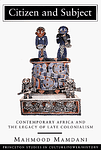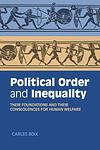The Greatest Unknown "Political, Nonfiction" Books Since 1980
Click to learn how this list is calculated.
This list represents a comprehensive and trusted collection of the greatest books. Developed through a specialized algorithm, it brings together 300 'best of' book lists to form a definitive guide to the world's most acclaimed books. For those interested in how these books are chosen, additional details can be found on the rankings page.
Genres
The "Political" category of books encompasses works that explore the theory, practice, and history of government and politics. These books may cover topics such as political ideologies, political systems, political institutions, political movements, and political leaders. They may also examine the relationship between politics and other areas of society, such as economics, culture, and international relations. Political books can be both informative and thought-provoking, offering readers insights into the complexities of the political world and the challenges of governing in a democratic society.
Countries
Date Range
Reading Statistics
Click the button below to see how many of these books you've read!
Download
If you're interested in downloading this list as a CSV file for use in a spreadsheet application, you can easily do so by clicking the button below. Please note that to ensure a manageable file size and faster download, the CSV will include details for only the first 500 books.
Download-
1. Citizen And Subject by Mahmood Mamdani
"Citizen and Subject" explores the complex relationship between citizenship and identity in postcolonial Africa. The author critically examines the concept of citizenship as a tool for exclusion and domination, particularly in the context of colonial and postcolonial states. Through a comprehensive analysis of case studies from Uganda and South Africa, Mamdani delves into the historical processes that have shaped the formation of citizenship and subjecthood, shedding light on the enduring legacies of colonialism and the challenges faced by marginalized groups in attaining full citizenship rights.
-
2. Political Order And Inequality by Carles Boix
This book delves into the intricate relationship between political dynamics and social inequalities, offering a comprehensive analysis of how political institutions shape economic disparities and vice versa. The author argues that the formation of political order and the distribution of resources within a society are deeply interconnected processes, influenced by historical events, economic pressures, and power struggles. Through a detailed examination of various political systems and historical contexts, the book presents a theoretical framework for understanding the mechanisms through which political stability and inequality are mutually reinforced, suggesting that the path to a more equitable society lies in the careful restructuring of political institutions to address the root causes of inequality.
-
3. The Age of Surveillance Capitalism by Shoshana Zuboff
The book explores the emergence of surveillance capitalism, a new form of capitalism that thrives on personal data. The author details how tech companies, such as Google and Facebook, collect and use personal data to predict and modify human behavior as a means to produce revenue and market control. The book delves into the consequences of this phenomenon on economy, society, and democracy, warning about the dangers of unchecked data collection and manipulation.
Reading Statistics
Click the button below to see how many of these books you've read!
Download
If you're interested in downloading this list as a CSV file for use in a spreadsheet application, you can easily do so by clicking the button below. Please note that to ensure a manageable file size and faster download, the CSV will include details for only the first 500 books.
Download

